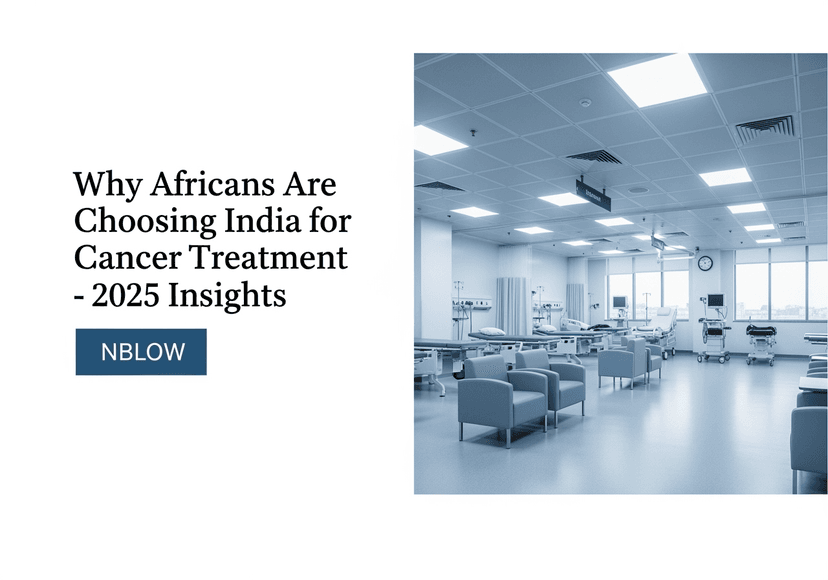
Understanding A1C Levels in Diabetes Control in the UAE
20 Oct, 2023
 Healthtrip
HealthtripIntroduction
Diabetes is a prevalent and growing health concern worldwide, and the United Arab Emirates (UAE) is no exception. In the UAE, the prevalence of diabetes is among the highest in the world, with approximately 17.3% of the population affected by the disease. Effective management of diabetes is crucial to prevent complications and improve the quality of life for individuals living with the condition. One of the key measures in diabetes management is monitoring A1C levels. In this article, we will delve into the significance of A1C levels in diabetes control in the UAE.
What is A1C?
A1C, also known as HbA1c or glycated hemoglobin, is a blood test that measures the average blood glucose levels over the past two to three months. Unlike daily glucose monitoring, which provides a snapshot of blood sugar levels at a specific moment, A1C provides a comprehensive view of long-term glucose control. The test is particularly valuable in assessing how well an individual's diabetes is being managed over time.
Most popular procedures in India
A1C Targets in Diabetes Management
The American Diabetes Association (ADA) recommends specific A1C targets for different groups of individuals with diabetes. These targets serve as guidelines for healthcare providers and patients to assess and adjust treatment plans. In the UAE, the Ministry of Health and Prevention plays a pivotal role in disseminating these guidelines and promoting diabetes management strategies.
A1C, also known as HbA1c, is a vital parameter in the management of diabetes. It offers a comprehensive view of an individual's blood glucose control over the past two to three months, helping healthcare providers and patients assess treatment effectiveness and make necessary adjustments. The American Diabetes Association (ADA) provides clear guidelines for A1C targets in diabetes management, ensuring that healthcare professionals and patients have a well-defined goal to work towards. These targets vary depending on the type of diabetes and individual circumstances:
Wellness Treatments
Give yourself the time to relax
Lowest Prices Guaranteed!

Lowest Prices Guaranteed!
1. For Most Adults with Type 2 Diabetes
The ADA recommends an A1C target of below 7%. This target is considered appropriate for many adults with type 2 diabetes and reflects a balance between achieving good glucose control and minimizing the risk of hypoglycemia (low blood sugar).
2.Individualized Goals
In some cases, particularly when dealing with older adults or those with a longer life expectancy and a low risk of hypoglycemia, individualized A1C targets may be set. Factors such as overall health, potential complications, and the presence of other medical conditions should be considered when determining these personalized goals.
3. For Children and Adolescents with Type 1 Diabetes
Children and adolescents with type 1 diabetes generally have a target A1C level of below 7.5%. This target aims to maintain good glucose control while considering the specific needs of younger individuals.
It's essential for healthcare providers to communicate these A1C targets clearly to patients and involve them in setting and achieving these goals. Regular monitoring and adjustments to treatment plans are key elements in diabetes management to ensure that A1C levels stay within the recommended target range.
Importance of A1C Control in the UAE
The United Arab Emirates (UAE) faces a significant diabetes epidemic, with one of the highest prevalence rates in the world. In this context, A1C control plays a critical role in diabetes management, and its importance in the UAE cannot be overstated. Here are the key reasons why A1C control is of paramount importance in the UAE:
1. High Diabetes Prevalence
The UAE grapples with a staggering prevalence of diabetes, with approximately 17.3% of the population affected by the disease. This high prevalence places a substantial burden on the healthcare system, the economy, and the overall well-being of the population. Effective A1C control is essential to mitigate the consequences of uncontrolled diabetes and reduce the strain on healthcare resources.
2. Diabetes-Related Complications
Uncontrolled diabetes can lead to a wide range of complications, including cardiovascular disease, kidney problems, neuropathy, and retinopathy. A1C control is instrumental in reducing the risk of these complications. Given the high diabetes prevalence in the UAE, preventing these complications is crucial to improving the quality of life for those living with the condition and reducing healthcare costs.
3. Cultural and Lifestyle Factors
Cultural and lifestyle factors in the UAE, including a diet high in sugary foods, sedentary habits, and changing demographics, contribute to the diabetes epidemic. A1C monitoring helps individuals and healthcare providers track the impact of these factors on glucose control and make necessary adjustments to treatment plans. It provides a valuable tool for understanding how cultural and lifestyle factors influence diabetes in the UAE and how interventions can be tailored to address these specific challenges.
4. Preventing Hypoglycemia
While controlling A1C levels is crucial, overly aggressive control can sometimes lead to hypoglycemia, a potentially life-threatening condition. Striking the right balance in managing A1C levels is particularly vital in the UAE, especially for individuals who may be at a higher risk of hypoglycemia. Healthcare providers must navigate this delicate balance to ensure that patients achieve optimal glucose control while avoiding dangerous low blood sugar episodes.
5. Economic Impact
Uncontrolled diabetes not only has health implications but also exacts a significant economic toll on the UAE. Costs associated with diabetes-related complications, hospitalizations, and lost productivity are substantial. A1C control can help reduce these economic burdens by preventing complications and reducing the overall cost of diabetes care.
Strategies for A1C Control in the UAE
To effectively manage A1C levels in the UAE, a multifaceted approach is required, involving healthcare providers, policymakers, and individuals living with diabetes. Here are some strategies for A1C control:
1. Education and Awareness
Raising awareness about diabetes and the importance of A1C control is the first step. This can be achieved through public health campaigns, school programs, and community outreach. Healthcare professionals should also play a crucial role in educating patients about the significance of regular A1C testing and diabetes management.
2. Personalized Treatment Plans
Healthcare providers should develop personalized treatment plans that consider an individual's unique circumstances, including cultural and lifestyle factors. These plans should set realistic A1C targets and involve patients in the decision-making process.
3. Dietary and Lifestyle Changes
Promoting healthier dietary choices and increased physical activity is essential for A1C control. This can be achieved through community programs, sports initiatives, and policies that encourage healthier eating in schools and workplaces.
4. Regular Monitoring
A1C levels should be regularly monitored as part of diabetes management. Telemedicine and remote monitoring technologies can help individuals in remote areas or those with limited access to healthcare facilities to track their A1C levels and receive timely guidance from healthcare providers.
5. Healthcare Access
Efforts should be made to improve healthcare access for all UAE residents, particularly in underserved communities. This includes expanding the availability of diabetes clinics and educating healthcare professionals about the latest guidelines for diabetes management.
6. Combatting Stigma
Efforts to reduce the stigma associated with diabetes are crucial. Public campaigns and awareness programs can help dispel myths and stereotypes about the disease and encourage individuals to seek care without fear of judgment.
7. Research and Innovation
Investing in research to better understand the genetic and environmental factors influencing diabetes in the UAE can lead to innovative treatment approaches. Collaborations between researchers, healthcare institutions, and the government can yield valuable insights into effective A1C control strategies.
Future Directions and Global Collaboration
As the United Arab Emirates continues to address the challenges of diabetes management and A1C control, it is essential to consider future directions and opportunities for global collaboration. The following areas warrant attention:
1. Prevention Efforts
Preventing new cases of diabetes is as important as managing existing ones. Public health campaigns emphasizing prevention through healthier lifestyles, early screening, and genetic risk assessment can significantly reduce the future burden of diabetes.
2. Technological Advancements
The integration of technology, such as continuous glucose monitoring systems, insulin pumps, and telemedicine, can revolutionize diabetes management. The UAE should invest in these technologies to improve access and quality of care.
3. International Collaboration
Collaborating with international organizations, researchers, and healthcare providers can bring valuable insights and best practices to the UAE. Sharing experiences with other countries facing similar challenges in diabetes management can lead to innovative solutions.
4. Policy and Regulation
The UAE government should consider policies and regulations to promote healthier food choices and discourage the consumption of sugary, high-calorie foods. Regulation can play a vital role in reducing the incidence of diabetes.
5. Research and Data Collection
Funding research on diabetes and collecting comprehensive data on the disease's prevalence, risk factors, and treatment outcomes are essential. This data can inform evidence-based strategies for A1C control and better healthcare planning.
6. Empowering Patients
Empowering individuals with diabetes to take an active role in their care is crucial. Providing education, support, and resources for self-management can lead to improved A1C control.
A Brighter Future for Diabetes Management
Understanding A1C levels and their significance in diabetes control is a key aspect of tackling the diabetes epidemic in the UAE. With a multifaceted approach that includes education, personalized treatment plans, lifestyle changes, and access to healthcare, the UAE can make significant progress in A1C control and overall diabetes management.
As the nation continues to address this critical health challenge, it has the potential to serve as a model for other regions facing similar diabetes burdens. By fostering innovation, encouraging collaboration, and empowering individuals with diabetes, the UAE can create a brighter future where A1C levels are effectively controlled, complications are minimized, and the overall well-being of the population is improved.
Related Blogs

Getting a Second Medical Opinion from Indian Doctors – 2025 Insights
Explore getting a second medical opinion from indian doctors –

Post-Surgery Recovery Tips for International Patients – 2025 Insights
Explore post-surgery recovery tips for international patients – 2025 insights

Why Africans Are Choosing India for Cancer Treatment – 2025 Insights
Explore why africans are choosing india for cancer treatment –

Top Reasons Patients Choose India for Medical Travel – 2025 Insights
Explore top reasons patients choose india for medical travel –

HealthTrip vs Other Medical Tourism Platforms: A Comparison
Learn more about healthtrip vs other medical tourism platforms: a

Top 10 Hospitals in India for Cardiac Surgery
Learn more about top 10 hospitals in india for cardiac










